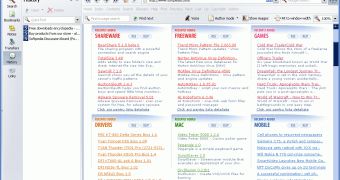Opera Browser has always been an alternative for the top players Firefox and Internet Explorer, so we all expect a very powerful solution that would be able to compete with the two giants. However, Opera, which I must admit is one of my favorite browsers, contains some security flaws that could put the users at risk, SecurityFocus reported today. At this time, Opera Software didn't release a patch to correct the vulnerability, but SecurityFocus wrote that the flaw affects Opera 9.50 beta and 9.24. However, some other versions of the application might be affected as well.
"Opera Web Browser is prone to a remote denial-of-service vulnerability," SecurityFocus wrote in the security notification titled "Opera Web Browser Bitmap File RLE Remote Denial Of Service Vulnerability" and published today. "Successfully exploiting this issue will allow an attacker to cause the application to stop responding, denying further service to legitimate users," it was also mentioned.
Opera Browser is pretty popular among the Internet users, as it is installed on millions of computers from all over the world. For example, Opera has no less than 111,275 downloads on Softpedia, whereas Firefox has 595,670 hits.
Opera has all the utilities a user would need while browsing the web. Starting with tabbed browsing, integrated search or pop-up blocking and ending with password manager, mouse gestures, notes and voice control, all the features are available under a nice-looking interface that is customizable with widgets and themes.
The latest Opera release, codenamed Kestrel, was launched in September in early alpha stages. Although it was only a testing version of the Opera Browser, numerous users have downloaded and installed it as it contains several attractive features. For example, Opera 9.5 comes with improved support for CSS, improved mail features, improved security and several other functions.
If you want to download the latest version of Opera for Windows, you can take it straight from Softpedia.

 14 DAY TRIAL //
14 DAY TRIAL //